Weak export demand hits trade surplus in 2011
Updated: 2012-01-06 07:12
By Ding Qingfen (China Daily)
|
|||||||||
Figure reduced by 15% to $160b as export outlook cited as severe
BEIJING - China's trade surplus narrowed to $160 billion in 2011, from a year earlier, as export demand weakened in the United States and Europe, the Ministry of Commerce said on Thursday.
And the outlook for exports in 2012 is "severe" but foreign trade will be "more balanced" with measures to boost imports, officials from the ministry said during the annual National Commerce Work Conference in Beijing.
The trade surplus last year declined by 15 percent from a year earlier to $160 billion, Chen Deming, minister of commerce, said during his keynote speech at the two-day conference which started on Thursday.
Chen highlighted the major tasks that the ministry will undertake in the coming year, including stabilizing exports, increasing imports and balancing foreign trade.
|
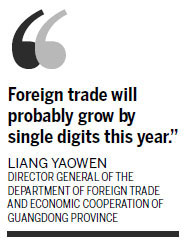 |
The ratio of China's surplus to its GDP is expected to fall to "2 percent" in 2011 from 3.1 percent in 2010, he said, while foreign trade in 2011 grew by "20 percent" year-on-year to "$3.6 trillion".
The General Administration of Customs is expected to release export and import figures for December and the whole of 2011 on Jan 10.
As the European debt crisis spreads, China's year-on-year export growth has been declining during the past few months. The European Union is the largest destination for China's exports.
Exports increased by just 13.8 percent in November from a year earlier to $174.46 billion, the lowest since December 2009.
The trade surplus has been shrinking since the global financial crisis erupted in 2008. In 2009 the surplus decreased by 30 percent to $196 billion, and dropped again by 6.4 percent year-on-year to $183 billion in 2010.
Severe situation
"The business environment home and abroad for Chinese exporters is severe and there are many uncertainties and unstable factors ahead, especially with the spreading European debt crisis," Chen said.
Economists predicted that exports during the first quarter of this year will probably decrease from a year earlier.
"We cannot deny that export prospects are not positive but there is little possibility that a year-on-year decline will appear in the first quarter unless the global economy collapses," Wang Shouwen, director-general of the Department of Foreign Trade affiliated with the ministry, said at the conference.
Premier Wen Jiabao said this week that business conditions may be "relatively difficult" during the first quarter and China faces "problems of weakening external demand and rising costs for companies".
Exporters are facing a number of issues, Jin Yonghui, director-general of the Zhejiang Department of Commerce, said.
"Growing trade remedy cases, downward global economic pressures and rising labor costs are the biggest concerns of exporters (in Zhejiang province)." Zhejiang is a leading export province.
Liang Yaowen, director-general of the Department of Foreign Trade and Economic Cooperation of Guangdong province, said that companies in the nation's largest export region are under pressure.
"Foreign trade will probably grow by single digits this year," compared with 16 percent in 2011, Liang said.
To stabilize exports emerging markets will be prioritized.
China will organize a trade fair in Tanzania, East Africa, in June, the first of its type, in a bid to promote domestic products, Wang said.
China has organized trade fairs in the US and Europe.
Exports to developing nations in 2011 grew by 30 percent, and by 17 percent to developed nations, Wang said.
Measures will be introduced to transfer orders from coastal areas to central and western regions, he said.
Chen said in his speech that exporters would be encouraged to add value and conduct research.
China recently approved and announced the establishment of 59 export bases nationwide in a bid to help promote overseas shipments of traditional goods, including garments, shoes, and suitcases.
Balanced trade
Although the surplus shrank and export growth slowed in 2011, China's foreign trade has turned more balanced, Wang said.
The Ministry of Finance announced late last year that China would reduce import tariffs on more than 700 categories of goods ranging from high-tech equipment to consumer goods.
"China plans to import more goods, including energy, raw materials, key components, high-tech equipment and consumer goods this year," Chen said.
"And we will increase imports from the least developed nations, urging the developed nations to loosen restrictions on exports to China."
Related Stories
China's trade surplus to narrow to $150b 2011-12-15 13:26
Trade surplus to drop to $150b: MOC 2011-11-16 16:14
China's trade surplus rebounds to $24b in Oct 2011-11-07 13:45
Trade surplus shrinks as imports post surge 2011-11-11 07:37
Hot Topics
Kim Jong-il, Mengniu, train crash probe, Vaclav Havel, New Year, coast guard death, Internet security, Mekong River, Strait of Hormuz, economic work conference
Editor's Picks

|
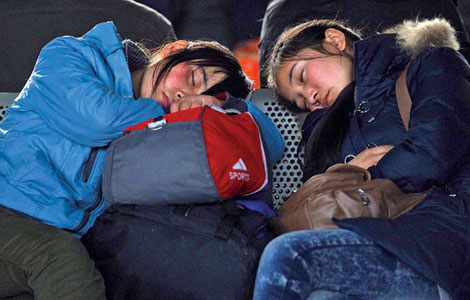
|
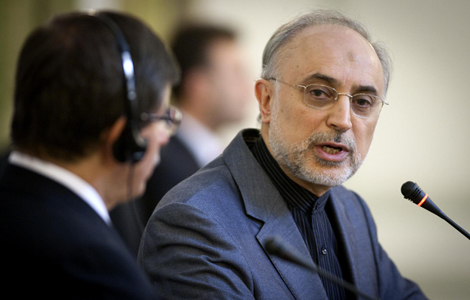
|

|
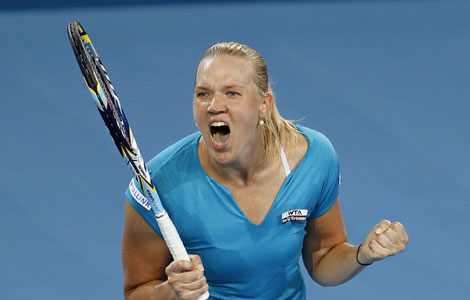
|
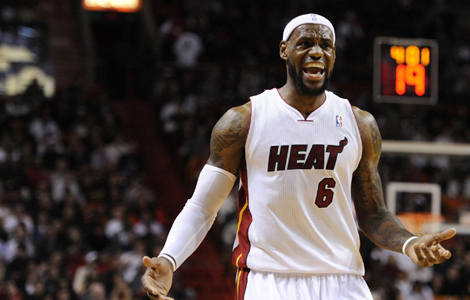
|







